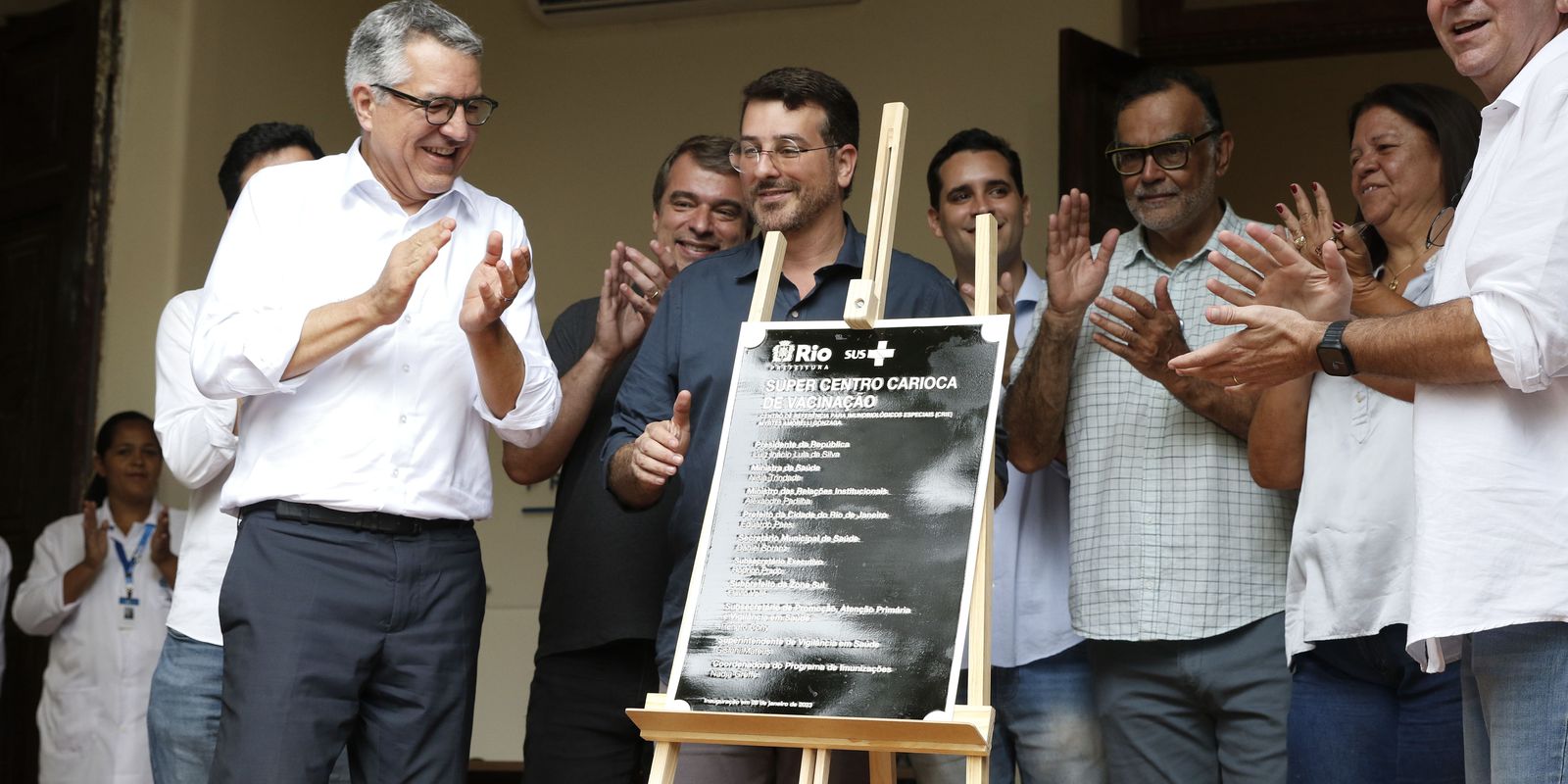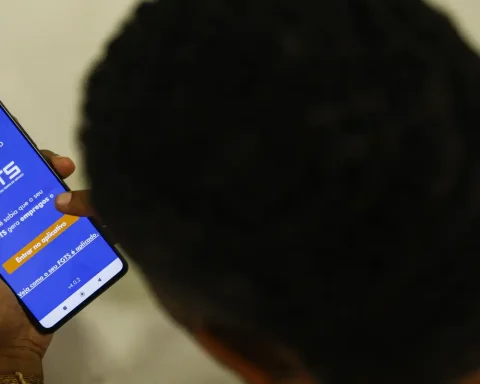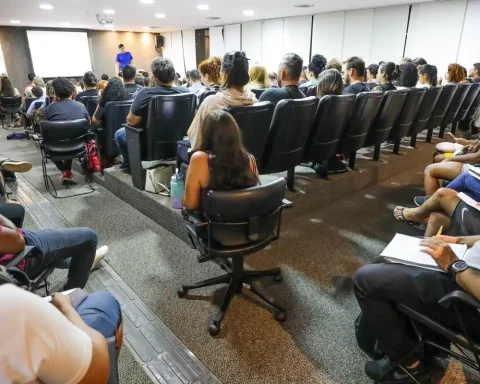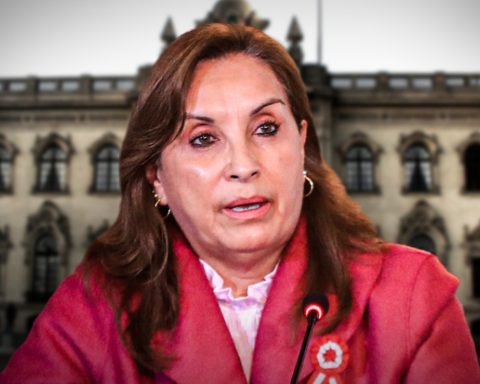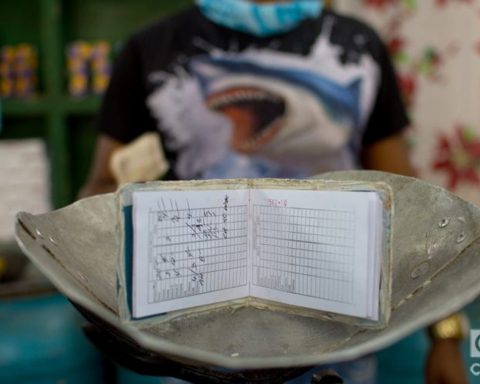In a ceremony held today (28), the City of Rio de Janeiro inaugurated the Super Centro Carioca de Vacinação, which has the capacity to serve up to 600 people per day. On site, every day of the week, from 8 am to 10 pm, all special immunizers provided free of charge by the Unified Health System will be offered.
The inauguration of the structure is one of the last actions of Daniel Soranz as municipal secretary of Health. Elected federal deputy, he will take office next week. According to Soranz, the new unit expands access to vaccination, benefiting the population. He said that, in addition to following the general vaccination schedule, the site will be prepared to attend to specific cases, such as splenectomized patients (who totally or partially removed the spleen) and patients allergic to some vaccine component.
Two more similar units will still be structured by the municipality. One of them will be inside the Oswaldo Cruz Foundation (Fiocruz), in Manguinhos, in the northern part of the Rio de Janeiro capital. The other, which should be inaugurated in January 2024, will operate at the Manoel Guilherme da Silveira Filho Polyclinic, in Bangu, in the west zone.
The immunization service will continue to operate in family clinics and health posts in the municipality. In these locations, services are available from Monday to Friday, from 8:00 am to 5:00 pm, and on Saturdays until noon.
historic building
The Super Carioca Vaccination Center was structured in a historic building in the Botafogo neighborhood, inaugurated in 1905. The author of the architectural project was Luiz Moraes Júnior, also responsible for the Moorish Castle of the Oswaldo Cruz Foundation (Fiocruz). “The city has a fondness for this building. And to be able to bring it back to its original function is incredible,” said Soranz.
Conceived by sanitarian Oswaldo Cruz, the building played an important role in vaccination campaigns against smallpox and yellow fever. It also housed a disinfectory, aimed at isolating patients with bubonic plague and other contagious diseases, who had to comply with strict standards of personal hygiene and personal objects. Oswaldo Cruz’s methods, considered drastic by other physicians at the time, brought positive results in the fight against bubonic plague, smallpox and yellow fever in the Rio de Janeiro capital.
In recent years, an administrative sector of the Rocha Maia Municipal Hospital operated in the building. It underwent renovations to house the Super Centro Carioca de Vacinação. The inauguration of the space was attended by Mayor Eduardo Paes and the Minister of Institutional Relations, Alexandre Padilha.
The Minister of Health, Nísia Trindade, justified her absence due to commitments in her portfolio and sent a greeting letter. Padilha informed that she would travel this Saturday to attend the inauguration of Brazilian physician Jarbas Barbosa as director of the Pan American Health Organization (PAHO). The ceremony will take place on Tuesday (31), at the entity’s headquarters, in Washington, in the United States.
Nísia should fulfill her agenda in Rio de Janeiro in the first week of February, together with President Lula. In the capital of Rio de Janeiro, they are going to inaugurate the National Queue Reduction Program of the Unified Health System (SUS).
vaccination coverage
In his speech, Padilha criticized the conduct of the fight against the covid-19 pandemic by the previous government, of former president Jair Bolsonaro. According to him, the disincentive to vaccination made Brazil no longer an international reference. “We always meet all the vaccination goals. I never imagined in my life that we were going to experience what we experienced in the midst of the covid-19 pandemic. A denialist public and institutional campaign against vaccines”, he lamented.
The minister said that starting in February, not a campaign, but a vaccination movement would start. “Zé Gotinha is back and Brazil will once again be a reference”. According to Soranz, one of the main efforts should be aimed at complying with the children’s calendar. He cited concerns about the drop in polio vaccine coverage .
“A reintroduction can cause a lot of damage. It is a disease that causes irreversible sequelae. So we insist that parents vaccinate against polio. And also against other diseases such as rubella and mumps. circulate in the world due to anti-vaccination movements”, he said.
Covid-19
Vaccination against covid-19 for children between 6 months and 4 years old should start in February, with the arrival of a new shipment of immunizers from Pfizer that will be distributed to municipalities by the Ministry of Health. Until then, in this age group, only children with comorbidities were vaccinated in Rio de Janeiro. “It is a vaccine that has not yet been updated, but it is very effective in preventing serious cases and deaths”, said Soranz.
For adults, a booster dose with the new generation of vaccines, which protects against different variants of the covid-19 virus, is scheduled for next month. “Today we have only 15 hospitalized patients in Rio de Janeiro. This is because we have a high vaccination coverage: 99% of the population received at least two doses. Soranz.
